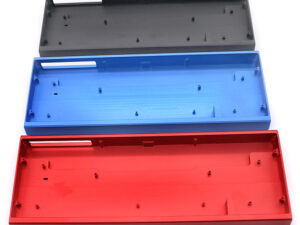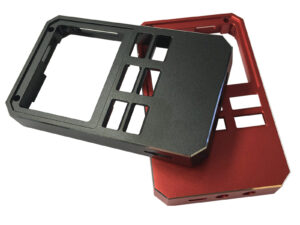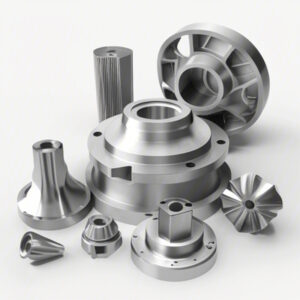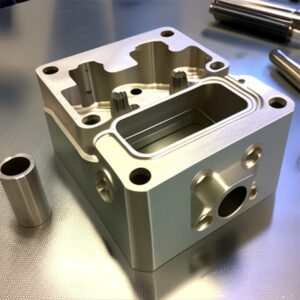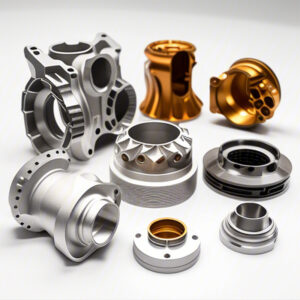Did you know that plastic machining has grown exponentially over the years? Recent statistics reveal that plastics account for about 25% of the materials processed in the CNC machining industry. As industries increasingly rely on precision engineering, understanding the properties and performance of different plastics in CNC machining has become crucial. This blog aims to delve into this topic, uncovering the suitability and applications of various plastics in industrial CNC machining.
Understanding CNC Machining
CNC (Computer Numerical Control) machining is a manufacturing process that utilizes computer-controlled machines to produce high-precision parts from a variety of materials. Unlike traditional machining, CNC machining offers automation, resulting in improved accuracy, reduced human error, and the ability to produce complex geometries that would be impossible or extremely difficult by hand.
Why Choose Plastics for CNC Machining?
Plastics offer several advantages over metals and other materials. They are lightweight, corrosion-resistant, and often less expensive than metal counterparts. Additionally, plastics can be easily molded and machined into complex shapes, making them particularly useful for specific industrial applications.
Common Types of Plastics Used in CNC Machining
Several types of plastics are commonly used in CNC machining, each with its own unique properties:
Analyzing the Performance of Plastics in CNC Machining
Understanding how different plastics perform in CNC machining is crucial for choosing the right material for specific applications. Below, we will examine key properties that affect the performance of plastics in CNC applications, covering factors such as machinability, wear resistance, temperature tolerance, and chemical resistance.
Machinability refers to the ease with which a material can be machined into a desired shape. Plastics generally have good machinability due to their relative softness compared to metals. However, factors like the type of plastic, its thickness, and the complexity of the design can influence machinability.
Best Practice: When selecting a plastic for CNC machining, focus on its ease of machining. Materials like ABS and POM are easier to machine compared to more brittle materials like polycarbonate. For complex shapes, consider options with good dimensional stability.
Wear resistance is vital in applications that experience a lot of friction, such as gears and bearings. Plastics like POM and nylon exhibit excellent wear resistance, making them suitable for these applications.
Best Practice: For components subject to wear, choose materials known for their durability. POM is particularly suited for high-load applications, while nylon performs well in moderate-load scenarios.
The temperature tolerance of plastics varies significantly. For instance, polycarbonate can withstand higher temperatures compared to ABS, which begins to lose its structural integrity at elevated temperatures.
Best Practice: Analyze the operating environment and temperatures before selecting a plastic. If your application involves heat, consider using materials like polycarbonate or PTFE.

Chemical exposure is another critical factor to consider. Different plastics react differently to a variety of chemicals. For example, PTFE is highly resistant to most chemicals, while ABS can be affected by strong solvents.
Best Practice: Evaluate the chemicals your machined parts will encounter. For environments where chemical exposure is a concern, PTFE or other resistant plastics are ideal choices.
Key Industries Utilizing Plastic CNC Machining
The versatility of plastics in CNC machining has led to their use across various industries. Here are some key sectors where plastic machining plays a significant role:
In aerospace applications, weight reduction is paramount. Plastics, especially advanced composites, play a crucial role in creating lightweight components that meet stringent safety and performance standards.
Automobile manufacturers increasingly rely on plastic CNC machining for producing parts that are both durable and lightweight, such as dashboards, trims, and engine components.
In the medical industry, precision and biocompatibility are essential. Plastics like polycarbonate and PTFE are frequently used in manufacturing surgical instruments and medical devices.
Plastics are widely used in electronic housings, components, and circuit boards due to their insulating properties and the ability to be easily machined to precise dimensions.
Challenges and Considerations in Plastic CNC Machining
Despite its advantages, CNC machining of plastics presents certain challenges:
In summary, the performance of different plastics in CNC machining is influenced by various factors, including machinability, wear resistance, temperature tolerance, and chemical resistance. Understanding these attributes is crucial for making informed decisions about material selection for specific applications.
As we delve deeper into this dynamic field, it becomes evident that the choice of plastic can significantly impact performance outcomes across numerous industries. Whether you are in aerospace, automotive, medical, or electronics, understanding how different plastics perform in CNC machining is essential.
Choosing the right plastic is not merely about availability; it affects functionality, durability, and the efficiency of your operations. As industries continue to evolve, staying abreast of the latest developments and practices in CNC machining will help you maximize the utility of plastics in your applications.
This blog serves as a reminder of the critical role that material selection plays in CNC applications, underscoring the importance of thorough research and industry insight. By leveraging this knowledge, readers can enhance their manufacturing processes and contribute to innovations within their respective fields.



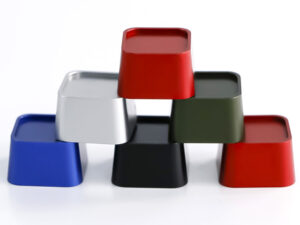
-300x225.jpg)

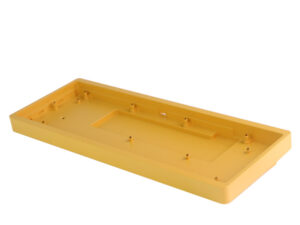
-300x225.jpg)
